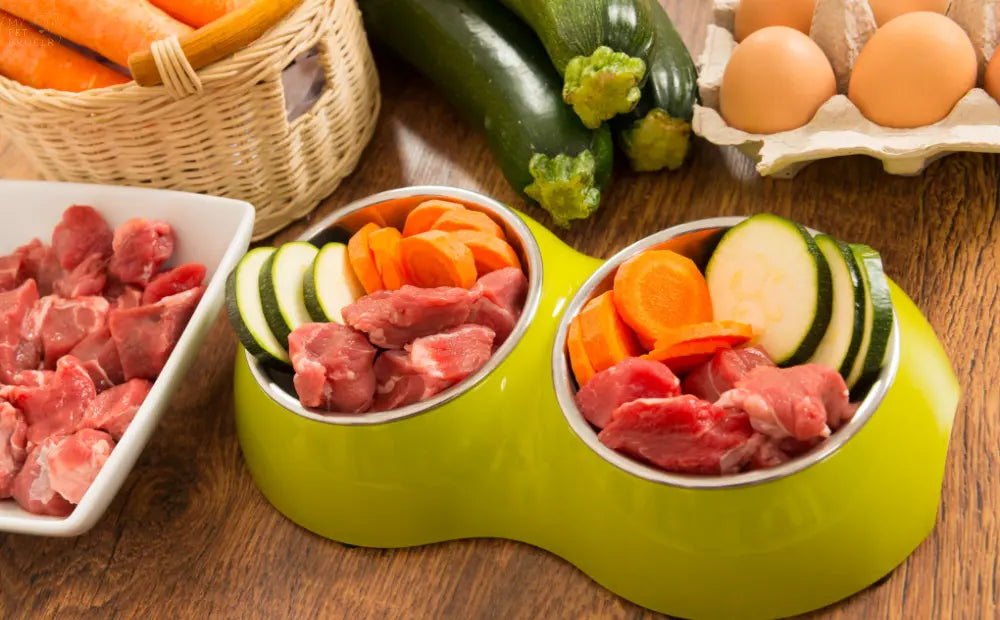
The Pros and Cons of a Homemade Diet for Dogs and Cats
Homemade diets for dogs and cats are growing in popularity, offering pet parents more control, customization, and transparency over what goes in the bowl. Fresh meals can improve palatability, digestibility, and even provide unique health benefits. But they also come with challenges: nutritional imbalances, higher costs, time demands, and the need for supplements and strict food safety. With guidance from a veterinary nutritionist, homemade feeding can be rewarding, but it isn’t a one-size-fits-all solution.
By Dr. Danielle Conway
Pet owners continue to focus more on nutrition and aim to provide the best for their furry companions. With the nutritional facts in mind, homemade diets for dogs and cats are becoming increasingly popular. One of the main reasons for their popularity is the freedom it gives to the pet owners to have more control over how to make and what ingredients to add.
However, even with total nutritional control when it comes to your furry friends, making meals at home for your cats and dogs still presents unique challenges. One main challenge comes with the fact that you’re not a nutritionist, and getting a balance of all the necessary ingredients may not be as simple as you may imagine.
In this article, we explore some of the pros and cons of feeding your pet homemade meals. This will help you understand the facts so that you can make an informed decision when giving your pets homemade diets.
Pros of a Homemade Diet for Dogs and Cats
Homemade diets can be a beautiful way to nourish your pet with intention and care. When done right, they offer unmatched control over ingredients and the ability to tailor meals to your pet’s unique needs, all while deepening the bond you share.
1. Control Over Ingredients
Homemade pet food allows you to handpick high-quality, fresh, and natural ingredients. This is especially beneficial for pets with allergies or sensitivities to additives, preservatives, or fillers commonly found in commercial pet foods.
2. Customization for Specific Health Needs
Homemade diets can be tailored to address specific health conditions. Whether your dog has kidney disease or your cat needs a low-carb diet, meals can be adjusted—under veterinary guidance—to meet their unique needs and support better health outcomes.
3. Transparency in Nutrition
With homemade meals, you know exactly what your pet is eating. This transparency can be reassuring, particularly compared to commercial pet foods, where ingredient lists may vary or appear vague. Although variability is natural, the ability to control every aspect of the diet offers peace of mind to many pet owners.
4. Improved Digestibility
Fresh diets are often more digestible than kibble or canned food, making them an excellent choice for pets with sensitive stomachs. While digestibility research is ongoing, many fresh food ingredients are known to be gentle on the gastrointestinal tract. Locally sourced or organic options can further enhance quality.
5. Enhanced Palatability
Homemade meals are typically more appealing to pets due to their fresh taste and texture. Keep in mind that cats, in particular, develop food texture preferences early in life. Transitioning adult cats to a homemade diet may require time and persistence.
6. Rich in Antioxidants
Homemade diets can offer higher levels of antioxidants and lower levels of potentially inflammatory compounds than many commercial options. Ongoing research continues to reveal exciting benefits of fresh food in pet nutrition.

Cons of a Homemade Diet for Dogs and Cats
That said, preparing homemade meals isn’t without its challenges. From ensuring nutritional balance to managing time and cost, it's important to approach this path with the right guidance and expectations to keep your pet safe and thriving.
1. Nutritional Imbalance
One of the biggest challenges of homemade diets is ensuring they are nutritionally complete. Dogs and cats have specific dietary requirements for proteins, vitamins, minerals, and essential fatty acids. Without professional guidance, it’s easy to overlook key nutrients, miscalculate amounts, or fail to consider how nutrients interact. This can lead to "relative deficiencies" (where nutrients seem adequate on paper but fall short in the pet’s body).
Mistakes like ingredient substitutions or improper cooking methods can further disrupt balance. Once there’s a balance disruption, your pet might experience serious health problems, such as bone disease, organ damage, or weakened immunity. To avoid these issues, always follow tightly balanced recipes from trusted sources and consult a veterinary nutritionist.
2. Time and Effort
Preparing homemade meals requires a significant investment of time and effort. From sourcing ingredients to cooking and portioning meals, the process can be overwhelming for busy pet owners. Monitoring your pet’s nutritional intake without expert help can also be challenging.
3. Cost
Using high-quality, organic, or specialty ingredients can make homemade diets more expensive than commercial pet foods. Fresh meats, vegetables, and necessary supplements often carry a higher price tag.
4. Need for Supplements
Even with careful meal planning, most homemade diets require supplementation to meet all of a pet’s nutritional needs. For example, cats require taurine, while both dogs and cats need calcium and other essential nutrients. Using incorrect supplements or dosages can be harmful, so it's critical to work with a veterinary professional.
5. Risk of Contamination
Handling raw ingredients such as meat or eggs increases the risk of contamination from harmful bacteria like Salmonella or E. coli. These pathogens can affect both pets and humans. Safe food handling practices, including proper cooking, storage, and hygiene, are essential.
6. Lack of Regulation
Unlike commercial pet foods, which are held to standards set by organizations like AAFCO, homemade diets are not subject to regulatory oversight. This can lead to inconsistencies. You should avoid substitutions or alterations unless you strictly follow well-researched recipes and professional veterinary guidance.
7. Confusion Around Recipes and Supplements
Many pet owners are unsure where to find safe, balanced homemade diet recipes or which supplements to use. Misinformation—such as advice to avoid all synthetic supplements—can make matters worse. Any recipe or supplement recommended by a veterinary nutritionist or trusted source like My Pet Grocer should be evidence-based and clinically reviewed.
Is a Homemade Diet Right for Your Pet?
Homemade diets offer benefits like ingredient control, freshness, and variety. However, they come with risks if not prepared correctly. If you're considering switching to a homemade diet, it’s essential to consult with a veterinarian or veterinary nutritionist to ensure the meals are balanced and tailored to your pet’s individual needs.
For many pet owners, a hybrid approach works best—combining high-quality commercial pet food with occasional homemade meals or treats. This strategy provides the convenience and nutritional assurance of commercial diets, while still allowing your pet to enjoy fresh, wholesome ingredients.
At My Pet Grocer, we make this process easier by offering balanced recipes and carefully curated supplements. Our goal is to help you prepare safe, nutritious, and enjoyable meals for your beloved furry companions. Contact us and let’s discuss more about your pet’s diet.
